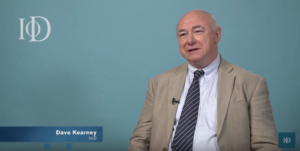OPDC | Management Consultancy, Development and Training for Individuals and Organisations.
Negotiating for Value
Our approach to negotiation learning is informed by the continuing work of the Harvard Negotiation Project to improve the theory and practice of negotiation.
During our programmes and workshops we use the ‘real and live’ negotiations of delegates to enable each individual to apply best practice principles to relevant examples.
Our emphasis is on negotiation in long-term, or potentially long-term, relationships. We help our clients re-orient their bearings: seeing resistance as an opportunity to discover underlying needs, using problems as a potential opportunity to strengthen trust and build creative new solutions, recognising and positioning themselves for a wider and longer playing field that might bring greater value to all parties, whilst being prepared to seek alternatives which may include walking away from a situation.
We have been providers to the IOD’s Negotiation Skills for Directors programme for more than 15 years and update the curriculum regularly with fruits of research and feedback.
David talks about OPDCs ‘win-win’ approach to negotiation.
Our approach builds on our core ‘push – pull’ model of influence and links strongly to concepts of trust, managing emotions, perspective, exploring needs and wants and inspiring others
Negotiation journey facilitation
Beyond providing clients with a model of win-win negotiation for ongoing use, we also provide a facilitation service for specific negotiation journeys. This service has proved to be particularly valuable to clients in supporting tender responses and contract renewals.
The schematic below represents a contract negotiation planning journey facilitated by OPDC.

We design these conferences with a twin focus on both a business agenda and a team building agenda. We look to engage attendees by putting the emphasis on ‘conferring’, rather than listening passively for most of this precious time. Our designs work both for organisations who are new to holding interactive and participative conferences, as well as for organisations who are already experienced and wish to take the next steps. Our approach includes processes to ensure that after the conference event, ‘calls to action’ are maintained and managed so that they gain real traction.
An Example Conference Plan
The example senior leaders’ conference shown below was designed and facilitated for a Chief Executive looking to engage the 50 most senior leaders in developing and collectively owning strategy for a large multi-national business. The conference event was a ‘kick-off’ for a longer term, multi-stage process spanning several months.


